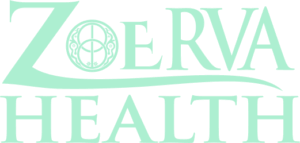
In today’s healthcare landscape, individuals are increasingly seeking alternative approaches to care that prioritize holistic well-being. Richmond, VA, is a city where options like integrative medicine and lifestyle medicine are gaining traction.
Compare and understand these options so you can make an informed decision for a more personalized and evidence-based approach to wellness. Look into the foundations of each approach, their key principles, similarities and differences, and how they can impact your health journey. Armed with this knowledge, you’ll be better equipped to discuss your health prospects with your healthcare provider and make a choice that aligns with your unique needs and preferences.
What Is Integrative Medicine?
Integrative medicine represents a holistic approach to healthcare that fuses conventional Western medicine with complementary alternative therapies. Richmond integrative medicine is becoming increasingly popular, and this approach can be seen in clinics that offer a blend of therapies. It operates on the belief that each person is unique and a personalized treatment plan is integral to optimal health outcomes.
The individual’s daily routine in integrative medicine can vary greatly, depending on their personalized treatment plan. It could involve a mix of traditional medical appointments, acupuncture sessions, yoga classes, and meditation exercises, promoting whole-body health. One example of a typical day in an individual’s life, following integrative medicine might begin with a morning yoga session, followed by acupuncture in the afternoon. They might also have a consultation with a dietician to discuss nutritional needs that support their overall well-being. Alongside these therapies, they may also be prescribed conventional medications or recommended certain medical treatments by their healthcare provider. This multi-faceted approach highlights the goal of integrative medicine to cultivate a healing environment that supports each individual’s journey toward optimal health.
Key Principles of Integrative Medicine Include:
- Healing the patient, not just treating the illness
- Using natural, less invasive interventions whenever possible
- Emphasizing the doctor-patient relationship and communication
- Considering all factors that influence health, including mind, body, and spirit
- Adhering to an approach that emphasizes the importance of prevention rather than cure
- Recognizing the significance of the body’s innate healing capabilities
- Appropriate use of both conventional and alternative methods to facilitate the body’s inherent healing
- Creating a treatment plan that fits the patient’s circumstances, which can include factors like lifestyle, genetic makeup, and past medical history
What Is Lifestyle Medicine?
Lifestyle medicine focuses on lifestyle modifications such as nutrition, physical activity, stress management, and social support to prevent, treat, and manage diseases. This approach can be incredibly beneficial for those in Richmond seeking to take control of their health through conscious lifestyle changes.
When applied correctly, this method can potentially alter the course of chronic diseases such as heart disease and diabetes. Individuals following the lifestyle medicine approach can expect their healthcare practitioner to work alongside them, providing guidance and support in making meaningful changes. Its goal is to enable individuals to reclaim control over their health outcomes through informed lifestyle choices.
Core Pillars of Lifestyle Medicine Include:
- Nutritional excellence and a balanced diet
- Regular physical activity
- Adequate rest and sleep
- Stress management techniques
- Social support and healthy relationships
- Avoidance of risky substances
In practical terms, individuals following a lifestyle medicine approach may expect their healthcare provider to work directly with them in setting realistic health goals and developing strategies to achieve them. This might include creating an exercise regimen, crafting a personalized diet plan, suggesting mindfulness techniques or other stress-reducing practices, and offering guidance on building strong social connections. As such, lifestyle medicine is a collaborative, empowering approach that combines medical expertise with the patient’s active participation. A person involved in lifestyle medicine may start their day with a morning run, followed by a nutritious breakfast. Their day might also include a meditation session to manage stress and spend quality time with loved ones to foster strong social bonds. The goal is to incorporate all pillars of this approach into a daily routine.
Similarities That Bridge the Two Practices
When looking at integrative medicine and lifestyle medicine, it’s clear that both approaches share several similarities.
A Holistic Approach to Health Care
First and foremost, both practices emphasize a holistic approach to health care. This means integrative and lifestyle medicine advocates for a comprehensive view of the individual, considering their physical, mental, and emotional well-being rather than focusing on specific symptoms or diseases.
A Prevention-Oriented Mindset
Both also have a praiseworthy prevention-oriented mindset. This means that they both prioritize protective health behaviors and lifestyle adjustments to prevent diseases before they occur. This contrasts with the traditional reactive healthcare model that typically only addresses health issues after they have already developed. It often neglects the underlying cause, leading to a cycle of continuous treatment without achieving long-term health. Integrative and lifestyle medicine, however, strives to break this cycle by incorporating preventative measures and addressing the root causes of health issues, leading to a more sustaining and holistic health outcome.
Patient-Centered Care
Patient-centered care is another shared philosophy between the two medicines. It places the patient at the core of the healthcare equation. This approach values and utilizes the patients in their care. It respects their values, preferences, and needs. Everyone gets to decide for themselves what the best course of action may be for their care, as long as they follow their doctor’s feedback and guidance.
A Focus on Root Causes
Both practices also focus on the root causes rather than just alleviating symptoms. Be it stress, diet, or lack of exercise, both integrative medicine and lifestyle medicine look to identify and rectify these root causes to promote overall well-being.
Key Differences Between Integrative Medicine and Lifestyle Medicine
Despite the similarities, there are still significant differences between these two health philosophies:
- Primary Focus: While integrative medicine works to integrate the best practices between traditional and alternative therapies, lifestyle medicine focuses on lifestyle modifications to prevent, treat, and manage diseases.
- Treatment Philosophy: Lifestyle medicine bases its treatments on proven, evidence-based lifestyle changes, while integrative medicine is more flexible. It allows for the inclusion of alternative treatments that may not necessarily be mainstream or scientifically proven to yield benefits.
- Professional Background: Typically, healthcare practitioners in lifestyle medicine come from conventional medical backgrounds. In contrast, integrative medicine calls on a broader range of professional expertise, including natural medicine, homeopathy, acupuncture, chiropractic, and other non-traditional fields.
Choosing the Right Approach for Your Health Needs in Richmond, VA
Individuals in Richmond, VA, must understand these differences when choosing between integrative and lifestyle medicine. While both approaches offer a more holistic and personal approach to health, a person’s choice should align with their health expectations, lifestyle, and belief system.
Lifestyle medicine, with its evidence-based focus on nutrition, exercise, stress management, and social relationships, may resonate more strongly with those who value scientific backing in their healthcare. It empowers individuals to take charge of their health through lifestyle changes, offering a proactive route to disease prevention and wellness. Do your research, consult with healthcare professionals, and choose the health approach that best fits your needs and health objectives.










